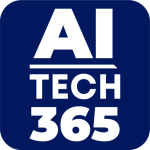AMD, Broadcom, Cisco, Google, Hewlett Packard Enterprise (HPE), Intel, Meta and Microsoft announced they have aligned to develop a new industry standard dedicated to advancing high-speed and low latency communication for scale-up AI systems linking in Data Centers.
Called the Ultra Accelerator Link (UALink), this initial group will define and establish an open industry standard that will enable AI accelerators to communicate more effectively. By creating an interconnect based upon open standards, UALink will enable system OEMs, IT professionals and system integrators to create a pathway for easier integration, greater flexibility and scalability of their AI-connected data centers.
The Promoter Group companies bring extensive experience creating large-scale AI and HPC solutions based on open standards, efficiency and robust ecosystem support.
Also Read: King Street Acquires Majority Interest in Colovore, a Leading Liquid-Cooled AI Data Center Operator
Driving Scale-Up for AI Workloads
As the demand for AI compute grows, it is critical to have a robust, low-latency and efficient scale-up network that can easily add computing resources to a single instance. Creating an open, industry standard specification for scale-up capabilities will help to establish an open and high-performance environment for AI workloads, providing the highest performance possible.
This is where UALink and an industry specification becomes critical to standardize the interface for AI and Machine Learning, HPC, and Cloud applications for the next generation of AI data centers and implementations. The group will develop a specification to define a high-speed, low-latency interconnect for scale-up communications between accelerators and switches in AI computing pods.
The 1.0 specification will enable the connection of up to 1,024 accelerators within an AI computing pod and allow for direct loads and stores between the memory attached to accelerators, such as GPUs, in the pod. The UALink Promoter Group has formed the UALink Consortium and expects it to be incorporated in Q3 of 2024. The 1.0 specification is expected to be available in Q3 of 2024 and made available to companies that join the Ultra Accelerator Link (UALink) Consortium.
Source: BusinessWire

